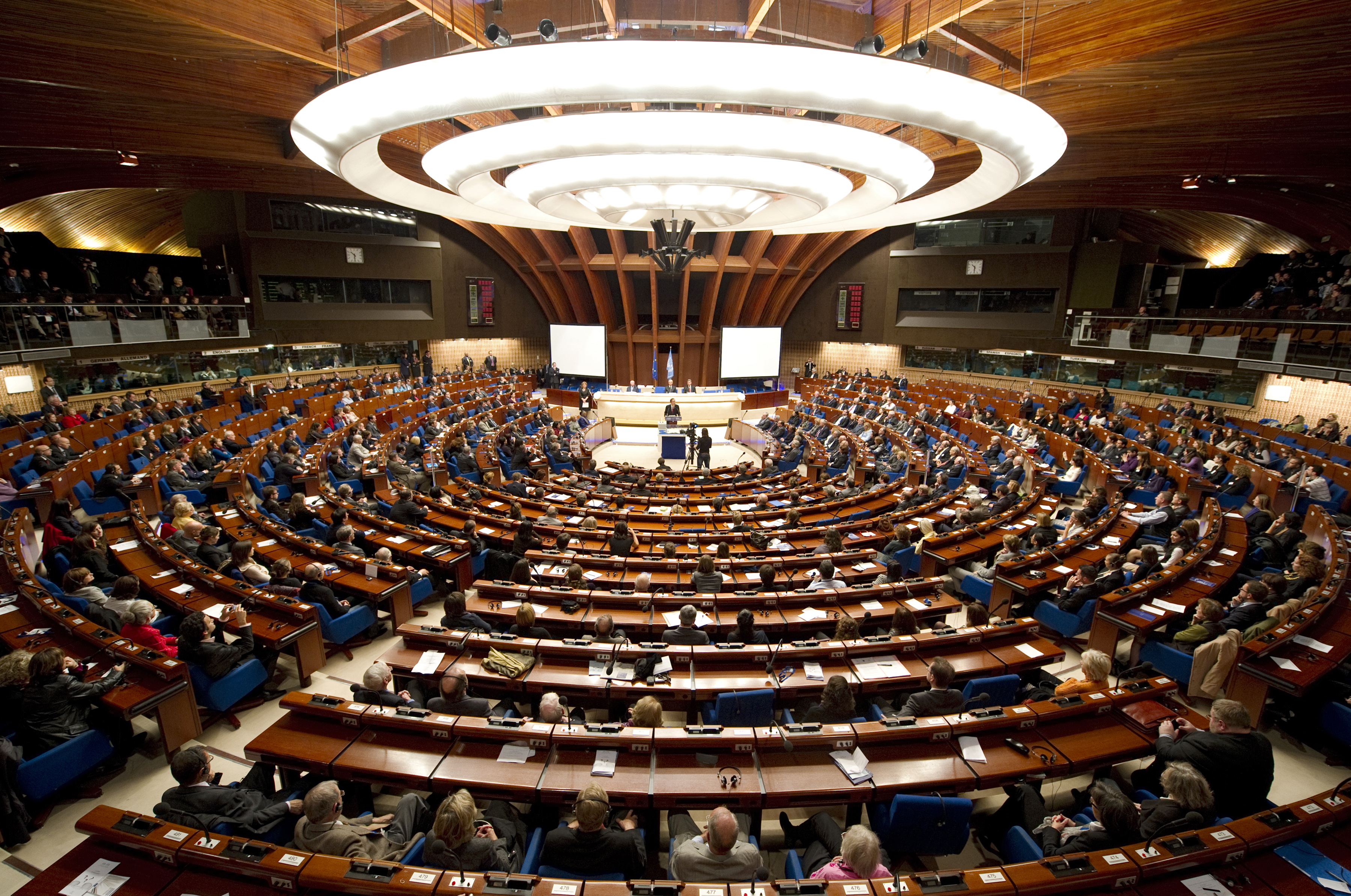Project Description
Switzerland has taken a number of constitutional, legal and administrative steps to ensure adequate application and implementation of the European Convention on Human Rights in Switzerland.
1. Due process rights enshrined in the European Convention on Human Rights are put on an equal footing with constitutionally guaranteed rights 2. Monism 3. Interpretation in accordance with international law 4. General precedence of human rights treaties 5. Review following a finding of a breach of the European Convention on Human Rights 6. Single avenues of redress under the Federal Supreme Court Act 7. Free legal assistance 8. Updating of the Federal Constitution 9. Sanctioning of cantonal constitutions 10. Prior constitutional review of federal legislation during the legislation process ____________ [1] See ATF 101 Ia 67, p.p 2c. [2] Federal Council report of 19 November 2014 pursuant to Stöckli parliamentary motion 13.4187 of 12 December 2013, Forty years of Swiss accession to the European Convention on Human Rights: assessment and outlook, FF 2015 353, p.380. [3] See Federal Department of Foreign Affairs, Relationship between international and domestic law, https://www.eda.admin.ch/eda/fr/home/aussenpolitik/voelkerrecht/einhaltung-foerderung/ [4] Federal Council report of 5 March 2010 pursuant to parliamentary motion 07.3764 of the Committee for Legal Affairs of the Council of States of 16 October 2007 and to the 20 November 2008 parliamentary motion 08.3765 of the Political Institutions Committee of the National Council, Relationship between international and domestic law, FF 2010 2067, p.2104. [5] FF 2010 2067, op.cit.,p.2108 [6] ATF 125 II 417, 424, preamb. para 4d [7] FF 2015 353, op. cit., p. 380 ff [8] See ATF 125 II 417. [9] FF 2015 353, op. cit., p. 380 ff. [10] The Federal Court accepted the requests for review in the following cases : Schuler-Zgraggen (ATF 120 v 150); Erben P (ATF 124 II 480); Hertel (ATF 125 II 185);Vgt. Verein v. Tierfabriken (ATF 126 I 158); Schlumpf (ATF 137 I 86); and Neulinger and Shuruk (ATF 137 III 332). [11] Stürm I and II, ATF 123 i 283 and 329. [12] FF 2015 353, op.cit.,p.389 [13] 28 February 2001 Explanatory note concerning the complete overhaul of the federal judicial system, FF 2001 4000, P.4032 ff [14] The Federal Assembly – the Swiss Parliament, the Swiss Federal Constitution, history, http://www.parlament.ch/f/wissen/li-bundesverfassung/pages/default.aspx [most recent visit, 1 May 2015], see Dispatch on new Federal Constitution of 20 November 1996, FF 1997 I I [15] FF 2015 353, op.cit., pg.383, FF 1997 I I, op.cit., pg 118
Shortly after the European Convention on Human Rights came into force, the Swiss Federal Court held that the safeguards under the European Convention on Human Rights were constitutionally protected
Any international instruments agreed to by Switzerland directly become part of Swiss law and are binding upon all State bodies, in keeping with the monist doctrine. [3] International commitments are therefore readily implemented with no special procedure being required for international norms to become enforceable under Swiss law. [4]
Interpretation in conformity with international law aims at ensuring consistency between international law and domestic law. Like interpretation in accordance with the Constitution under domestic law, interpretation in accordance with international law aims at ensuring uniformity between domestic and international legal norms. It is not aimed at resolving conflicts between such norms but rather at preventing such conflicts. Indeed, to the extent that domestic law can be interpreted in accordance with international law, no conflict can arise. The obligation to interpret domestic law in conformity with international law could be inferred from article 5, paragraphs 3 and 4 of the Federal Constitution of the Swiss Confederation of 18 April 1999 (Const.; RS 101). It is the equivalent under domestic law of the international obligations enshrined in articles 26 and 27 of the Vienna Convention on the Law of Treaties (RS 0.111) which provide that every treaty must be performed in good faith notwithstanding the provisions of internal law. In practical terms, this means that during the legislative process, the relevant authorities must seek to identify any potential inconsistencies between domestic law and international law and draft such implementing legislation as would help to avoid unnecessary complications at the international level. [5]
Under art.190 of the Constitution, the Federal Supreme Court and the other judicial authorities are to apply the federal acts and international law. In case of conflict – where interpretation consistent with public international law is not possible (see para. 3 above) – article 190 of the Constitution does not indicate whether federal laws take precedence over international law. However, the Federal Supreme Court has ruled that public international law in principle takes precedence over domestic law, especially where the international norm is aimed at the protection of human rights, in which case any contrary domestic legislation law may not apply.[6] The Federal Supreme Court does not countenance any case where federal laws may take precedence over previous rules of international law, especially with respect to human rights obligations (ATF 125 II 417). [7] That case was about the right to a fair trial (section I, art.6, ECHR ; art.14 of the International Covenant on Civil and Political Rights [RS 0.103.2]), and specifically the right to a judicial review on any civil claim.[8] The “PKK” case law therefore introduces a nuance into the duty to apply federal law provided for under article 190 of the Constitution.[9]
According to article 122 of the Swiss Federal Court Act, a review of a Federal Court decision for breach of the European Convention on Human Rights may be sought where:
a. the European Court of Human Rights has found in a final judgement that there has been a violation of the European Convention on Human Rights or the protocols thereto;
b. compensation may not cure the effects of the breach
c. revision is required to cure the effects of the breach.
As a result of the revision provided for under article 122 of the Federal Court Act, a right which was found by the Court to have been violated under the Convention may yet be enforced even in the face of contrary federal legislation
As at the end of 2013, 25 applications had been submitted to the Federal Court of which 15 were entertained.[10] It published two judgments on the appeals rejected.[11] These examples show that review affords an adequate avenue of redress for ensuring compliance with the decisions of the Court in relevant matters.[12]
One of the major innovations of the Act was the development of a single appeals procedure for each branch: one procedure for civil matters; one for criminal matters; and one for public law. Such streamlined procedure affords greater guarantees to litigants by reducing the potential risk of inadmissibility of appeal [13] and enhances further the right to an effective remedy as provided under articles 13 of the European Convention on Human Rights and 2, paragraph 3 (a) of the United Nations Covenant on Civil and Political Rights. The Federal Supreme Court Act, which provides for a streamlined redress under articles 72 and following, came into force on 1 January 2007.
Under article 29, paragraph 3 of the Constitution, any person who is indigent is entitled to free legal assistance, unless he stands little chance of being successful in his claim. He is also entitled to free assistance of counsel to safeguard his rights. The Court has established extensive and detailed case law especially in the area of criminal law. Such case law enables any person who cannot defray the costs of a legal suit to have his day in court and to effectively assert his rights.
In the 1990s, the Federal Constitution was reviewed and updated to codify unwritten constitutional law flowing from the decisions of the Federal Supreme Court and remove those provisions which became unconstitutional as a result.[14] Only the provisions and interpretations which had gained currency under Swiss law and practice were derived from international human rights instruments. The Federal Council explained that the pride of place given to the European Convention on Human Rights was because the decisions of the organs established under the Convention had the same effects as those of a constitutional court.[15] On 1 January 2000, the new Federal Constitution entered into force.
Under article 51, paragraph 2, of the Constitution, each cantonal constitution shall require the sanction of the Confederation. The Confederation shall sanction a constitution provided it is not contrary to federal law. Under article 172, paragraph 2, of the Constitution, the Federal Assembly shall sanction the cantonal constitutions.
The purpose of the federal sanction is to ensure that cantonal constitutions are consistent with the requirements of federal law, including international law binding upon Switzerland (see number 2 above). Thus cantons shall ensure that only draft bills which stand a chance of being approved by the Federal Assembly are submitted to it (prevention)
The Federal Council submits bills to the Federal Assembly together with an explanatory note (article 141, para. 1, of the Federal Assembly Act [LParl ; RS 171.10]). which provides justification for the bill and any relevant comments on individual provisions. It may also provide substantive comments, including the legal background and the consequences for constitutional rights, its effects on basic rights, its conformity with relevant legislation and its relationship with European law (art.141, para.2(a), LParl). The parliamentary commission is also required to do so (art. 111, para.3 LParl) where a draft bill has been accepted for legislation. Such practice has proven effective because it helps to identify early in the legislative process any inconsistency with hierarchically superior norms.
voelkerrecht-landesrecht.html [most recent visit 8 May 2015].






